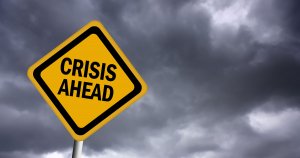How to communicate to external audiences during a crisis
 Sara Wilson, CPCC |
Sara Wilson, CPCC |
Today we are facing the proverbial hypothetical crisis that leaders always talk about preparing for. In case you are not prepared and are having trouble catching your breath while juggling staff, volunteers, constituents and events, accept that the virus isn’t going away immediately. As a leader in this time of crisis, you need to be communicating sooner rather than later with your constituents, especially if:
- people come to your space (for example a nature center, library or museum)
- your organization routinely convenes groups
- you have events planned
- you serve vulnerable communities
Below is a check list to help you address your immediate external crisis communication needs and take action. Answer the following questions to create your action steps:
- Who needs to be involved in this communication planning? Maybe it is just you, but consider any written guidelines in your organization.
- What is the public perception of your organization if you do / do not communicate during this public health situation?
- What is the message you need to convey? Are you taking extra precaution in your gathering spaces, are you canceling meetings, are you moving your meetings/gatherings to a virtual platform?
- Who on your team is monitoring the situation for your organization and how are you monitoring the situation? (Consider CDC, state health commissions.) Is it important to convey this to your constituents?
- What are your trigger/decision points to cancel an event, meeting, etc. Should you convey those?
- With whom (externally) do you need to communicate your message?
- Check your automatic social media stories, make sure they are appropriate at this time!
- Who is the spokesperson for your organization should you have an organization-wide or site-specific virus outbreak and the media contacts you?
What are your questions? Please comment on our social media pages, email us or call. We have successfully navigated through crisis communications. We are here to be a resource for you.
